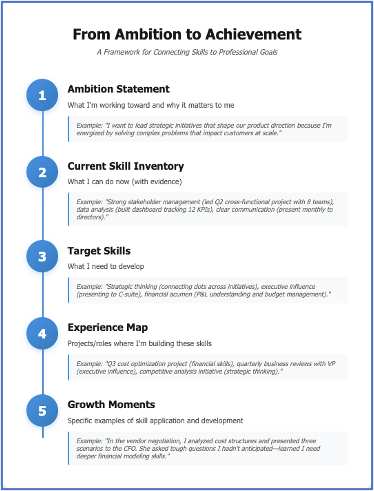Bottomline: Someone has to set goals for YOU

The Culture Platform is pleased to welcome Cecile Davis Carter to our What is Culture? blog family.
“Ces” is an advisor to the Transparency Imperative and a senior GTM executive at Phizzle leading software innovator. She joined the TI team because she is passionate about leaders and managers setting clear expectations for employees — the precise secret sauce of of the Transparency Imperative — one of the unique cultural values we support at TCP. We hope you enjoy hearing her thoughts on why a company culture platform is so important.
Why is clear goal-setting so important to a great culture?
Ces: Whether big or small, setting goals always leads to better results. The top challenge is simple: managers need to step up to set incredibly clear goals for individual contributors (ICs). That’s the big gap in organizations. Goals are often set at the company, BU or line-of-business level, but rarely trickle down in specific ways to ICs.
That’s why I believe managers are the lynchpin to a great culture — because managers sit between the aspirations of leaders and the individual contributions executing to those expectations. Setting formal expectations for employees is the single most important role of a manager; otherwise, ICs are “floaters” — where goals are never or rarely reached and career growth is effectively stalled.
Without goals, employees often get stuck in jobs because they have no way of demonstrating their results.
People are motivated by a few things at work. Obviously money is important, but the top motivation is growth. You can’t grow without clear exceptions and goals that can be measured and attained. How are you supposed to grow if you don’t have someone setting your goals?
What is the role of a manager in setting goals?
Ces: As a leader or manager, you need to take command. It is your job to to put the pieces of the puzzle together for your team. A good manager knows the best way to make the “recipe” for execution. Everyone on the team has a job or role in the recipe, but it is up to the leader or manager to stir the pot, making sure every thing is done on time, in the right quantities, in the precise sequence.
To do that properly, everything has to be measured. In short, goals provide the discipline any organization needs to drive successful execution. The only way to orchestrate a team is by formalizing what needs to be measured. In my experience, goal alignment down to the IC is almost never done well or consistently in organizations — because it is hard.
I want to challenge leaders and managers to take goal-setting to the next level: co-create your goals with individual contributors.
Ask your IC’s to formally align their job role to your organizational goals. In fact, spend time with your teammates helping them connect to your team goals in specific ways. Being accessible as a manager is fundamental to setting clear expectations for employees.
The modern manager doesn’t have a choice — considering how important it is to create career opportunities in the virtual, WFH era.
How does clear goal-setting help employees?
Ces: Goals aren’t just goals on a slide or chart; they are an IC’s emotional connection to a team.
It can’t be over-stated: goals connect an IC’s career growth to your team’s success.
It's a win-win. Goals are something an individual contributor can hold in their hands, a tangible way to know you are part of a team.
In summary, here are the top three reasons to set clear clear expectations for your employees:
- Goals help someone become better at something important to growing as a professional.
- Goals help individual contributors navigate the workplace better. Goals give an IC clarity of purpose in a meeting, in a scrum and in prioritization.
- Finally, goals validate people. Try walking in the shoes of your employees for moment: a goal can create a “signature project” (or projects) for an employee that amplifies their career path.
As a manager, be open to feedback and how to get better at setting clear and transparent expectations. That’s why the Transparency Imperative is here as part of your company culture platform.
Too much is at stake: if you want your employees to love where they work, it’s up to you as a leader or manager to make their job role and expectations transparent. The clearer the goals are, the clearer career growth is, The clearer the career growth is, the happier employees are And no doubt, happy employees lead to incredible execution.
Email thecultureplatform@gmail.com and ask for our worksheet on how to create clear expectations. We’re happy to help.




